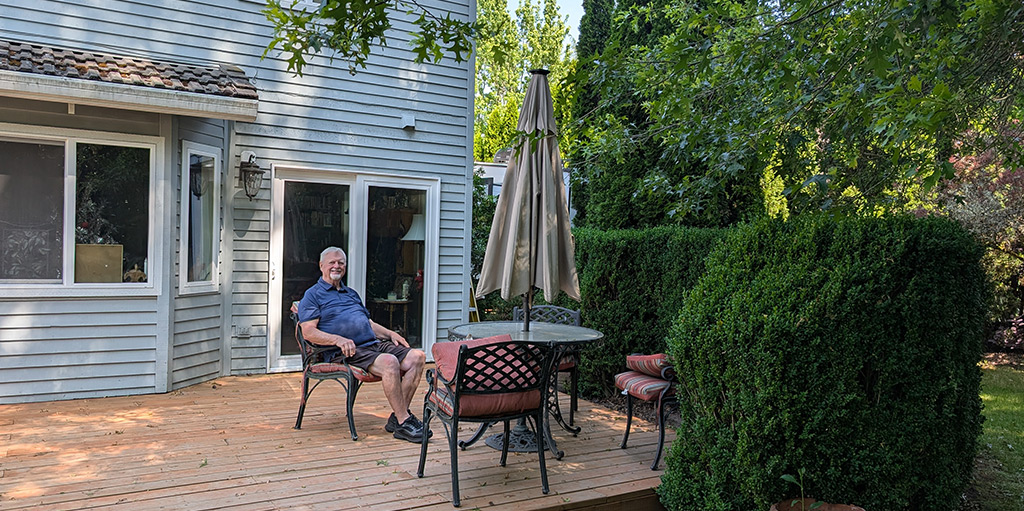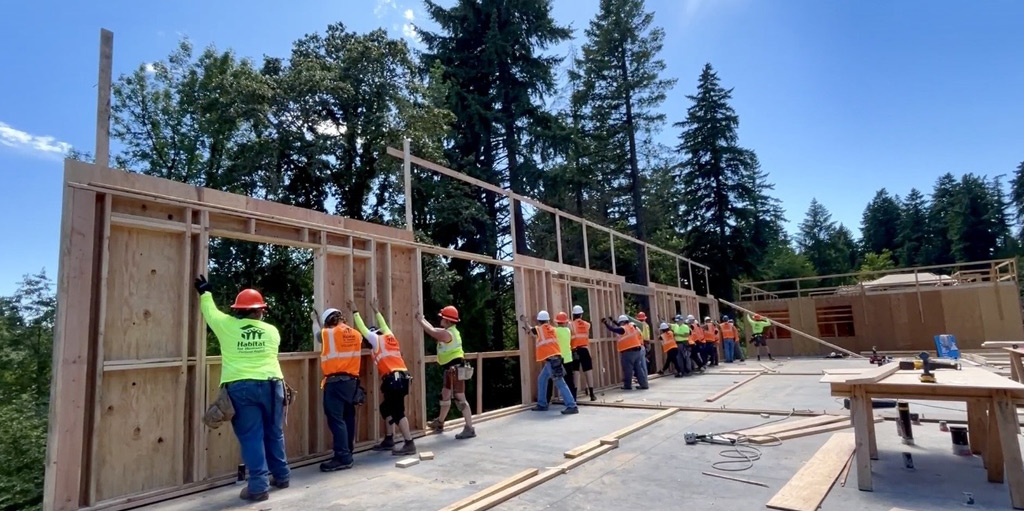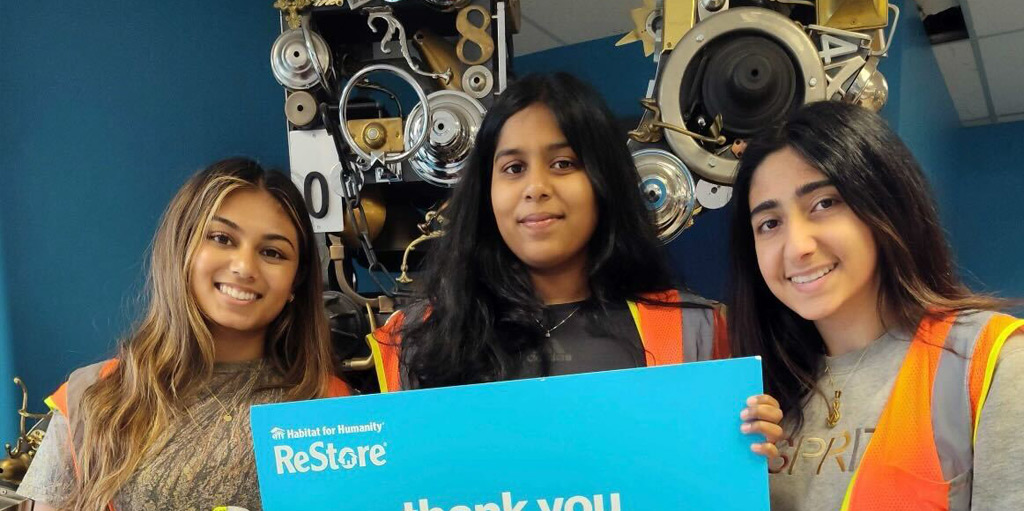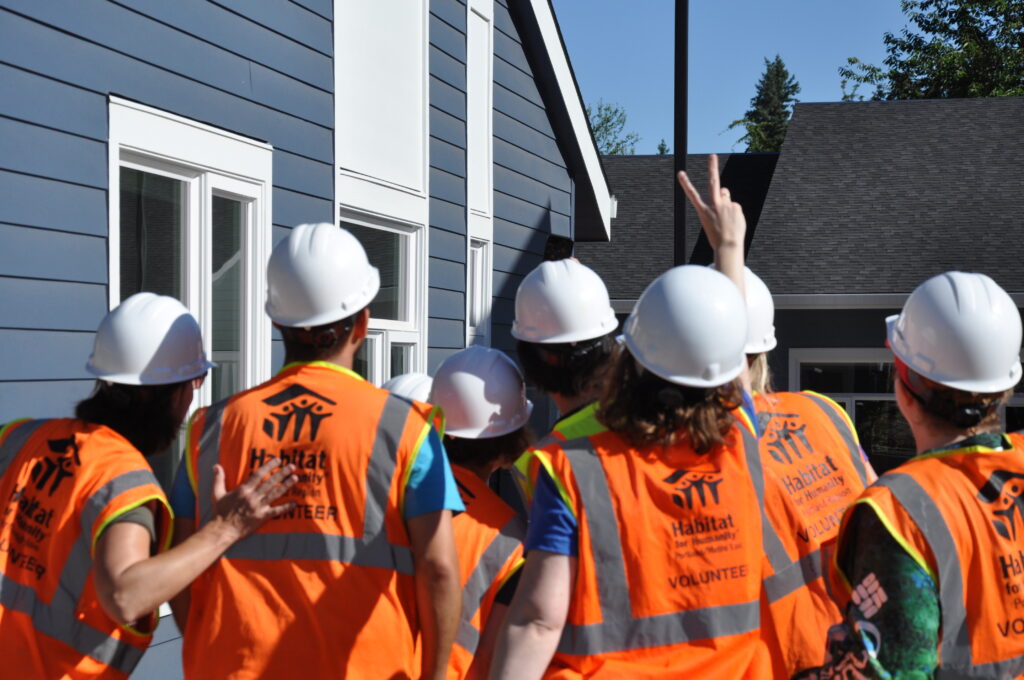
In March, The National Institutes of Health awarded Texas State University a 4-year, million-dollar grant to study the cardiovascular benefits of volunteering. It’s the latest attempt to quantify the impact volunteering has on the heart and wellbeing.
Unscientifically, however, anyone who has volunteered to make their community a better place knows exactly the effect it has on their heart. It can be an infectious condition, and it’s measured in selflessness and fulfillment, community, and even joy.
“Our commonality of purpose creates an instant bond,” said Habitat regular volunteer Leslie Johnson, speaking on the friendships she’s made, including with homebuyers she’s met at build sites. “There have been several homeowners I have worked with that felt safe enough to share their journey with me. Every time I am filled with such emotion: what it has taken to get them to this place in their life. They are elated to soon be a homeowner, to have a permanent home for their children, for their life, for their future. It fills my heart with such joy,” she said.
This April, Habitat for Humanity Portland Region celebrated National Volunteer Appreciation Month with multiple volunteer events at our build sites. This past year, more than 2,500 people volunteered with Habitat Portland Region, contributing an amazing 61,000 volunteer hours to help build safe, affordable homes.
Johnson and other volunteers like her are carrying on a foundational legacy of Habitat for Humanity: the spirit of volunteerism and the impact it can have in building stronger communities.
Volunteerism has been at the core of Habitat’s work from the first days of the organization, dating back to 1976, when Millard and Linda Fuller created Habitat for Humanity International on the idea of “partnership housing” — bringing together volunteers with Habitat homebuyers to build safe and affordable homes. Habitat Portland Region has been putting that philosophy to work since 1981, building more than 2,000 homes and repairing hundreds of others across the tri-county area.
Johnson witnessed personally what a stable home can mean for younger generations, she said, being a volunteer coach for a girls’ high school rugby team in Newberg and seeing the challenges unstable housing presented.
“I saw first-hand what can happen to young kids without a stable place to call home,” Johnson said.
It was volunteering with a Habitat International building project that Johnson said gave her clarity in what she wanted to do with her spare time. Retired since 2012, Johnson is a regular volunteer with Habitat, part of a group of people who have committed weekly service to Habitat’s work, not only to help build and repair homes, but to ensure our three supporting ReStores run smoothly.
Stephanie Paine first got involved with Habitat years ago when she lived in St. Louis, Missouri, where she learned how to use nail guns, saws and drills.
“We were really exhausted after the day’s work, but we all had smiles because we contributed to helping someone get a house!” Paine said.
When she retired and moved to Gresham, she resumed her volunteering with the Gresham ReStore, where, as a regular volunteer, she created a popular curated jewelry department from donated items.
“I love the community that the ReStore has built for volunteers,” she said. “We get great appreciation from the staff and make relationships with everyone — staff, volunteers and our customers. Every shift I work at our ReStore is fulfilling knowing that the efforts of all the staff and volunteers help us reach our community goals of helping families build their dream homes.”
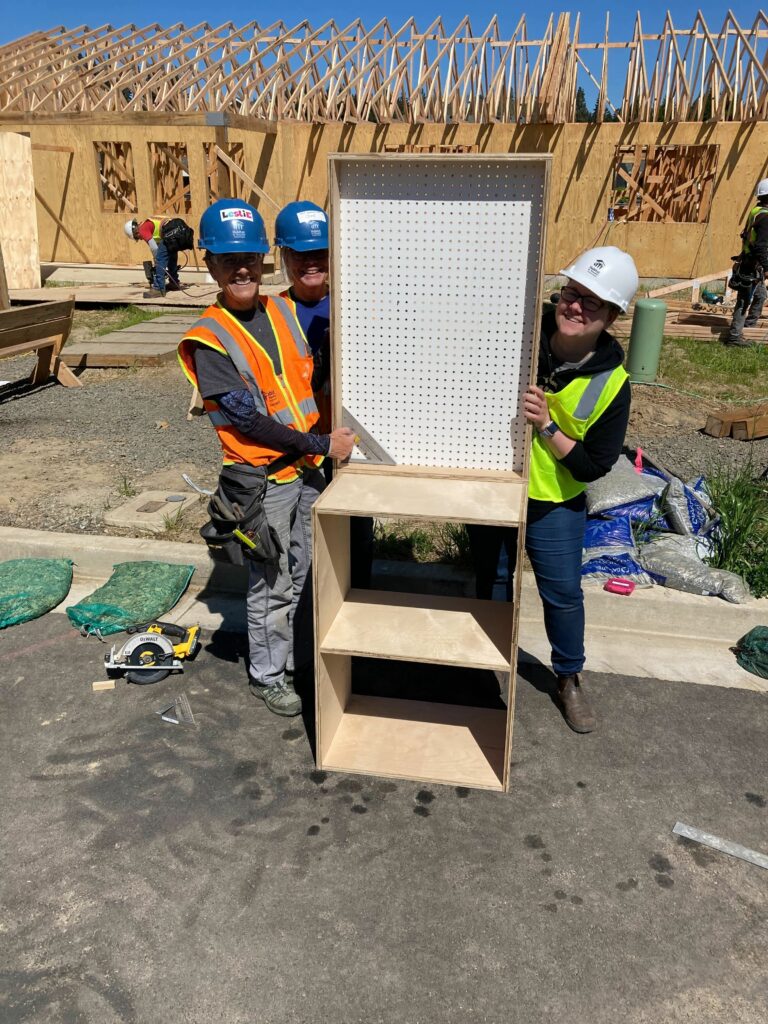
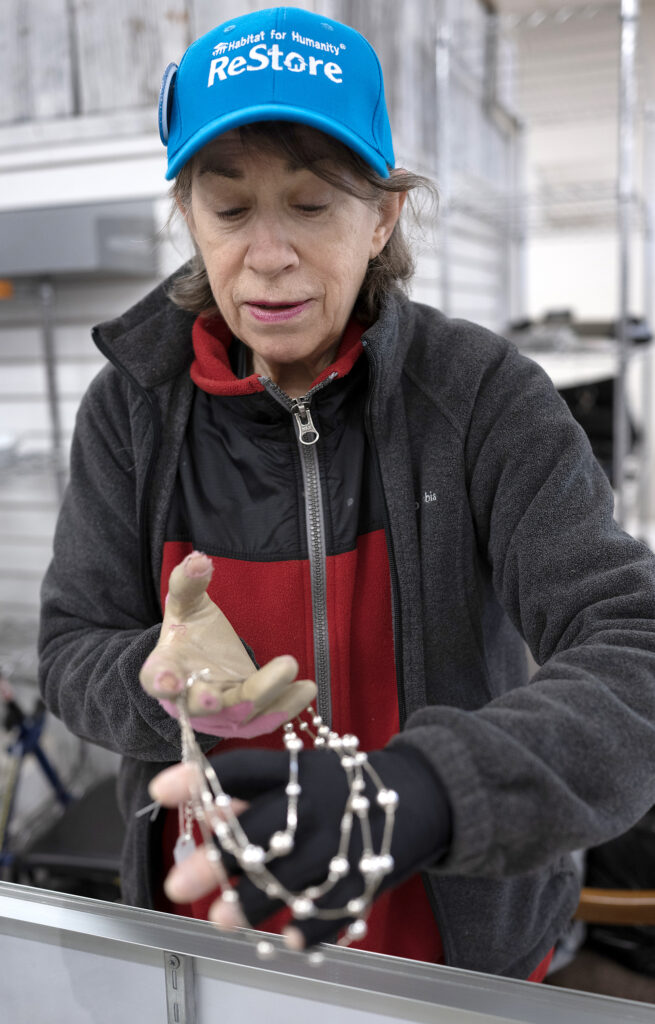
All of which is also good for the heart, it turns out. Numerous studies have found a connection between volunteering and better psychological and physical health. According to a report from the Mayo Clinic, volunteering leads to lower rates of depression and anxiety, especially for people 65 and older. And having a sense of purpose is closely linked to feelings of satisfaction and optimism, which in turn have been linked in many studies to lower risks of having a cardiovascular event, such as a heart attack.
It’s good for Habitat too. With the help of volunteers, we’re able to build homes throughout the Portland region more affordably. In addition to the thousands of individuals who lend their time, Habitat works with young adults through AmeriCorps and Portland Youth Builders to provide hands-on construction experience and foster social awareness and community engagement. We also partner with businesses and organizations through our team building events and Community Days program, bringing together diverse communities to work side by side building homes.
Volunteers at our three ReStores work with customers looking for gently used home furnishings, home goods and other home supplies, the sale of which directly supports the work of Habitat. Last year, ReStores engaged with more than 1,000 volunteers, clocking in more than 36,000 hours of support in stores, the warehouse, and in our donation pickup services.
“When it comes to volunteering, Habitat’s most important role is community engagement,” said Habitat Director of Volunteer Programs Bri Lopez. “Volunteers not only dedicate their time on build sites and at the ReStores, but they become great advocates for affordable homeownership.”
Beaverton ReStore volunteer Mary Weber calls volunteering at the ReStore a privilege. She enjoys the stimulation of experiencing something new every day, whether it’s meeting new people or old friends, or finding items that spark the imagination. Simply stated, however, “I volunteer at Habitat for Humanity because it is a chance for me to help others realize their dream of owning a home.”
After 36 years in dentistry, Joni Portman said she always knew she would pivot in an entirely different direction once she retired, when the long hours at work could transition into volunteering and helping others.
“It’s important to not just ‘stay busy’ once you retire, but to be busy with meaningful intent,” she said. “To be honest, the friendships I have formed through the years with my fellow Thursday regulars is what has me coming back every week; we have become a family.”
To Johnson, the benefits of volunteering go far behind the time and work she puts into building homes.
“Every time I attend a dedication or get the chance to work with a future homeowner, I know 100% that my time is well spent and meaningful.”
If you would like to volunteer with Habitat for Humanity Portland Region or at one of our three ReStore locations, visit habitatportlandregion.org/volunteer/ for more information. Individual and group opportunities available.
